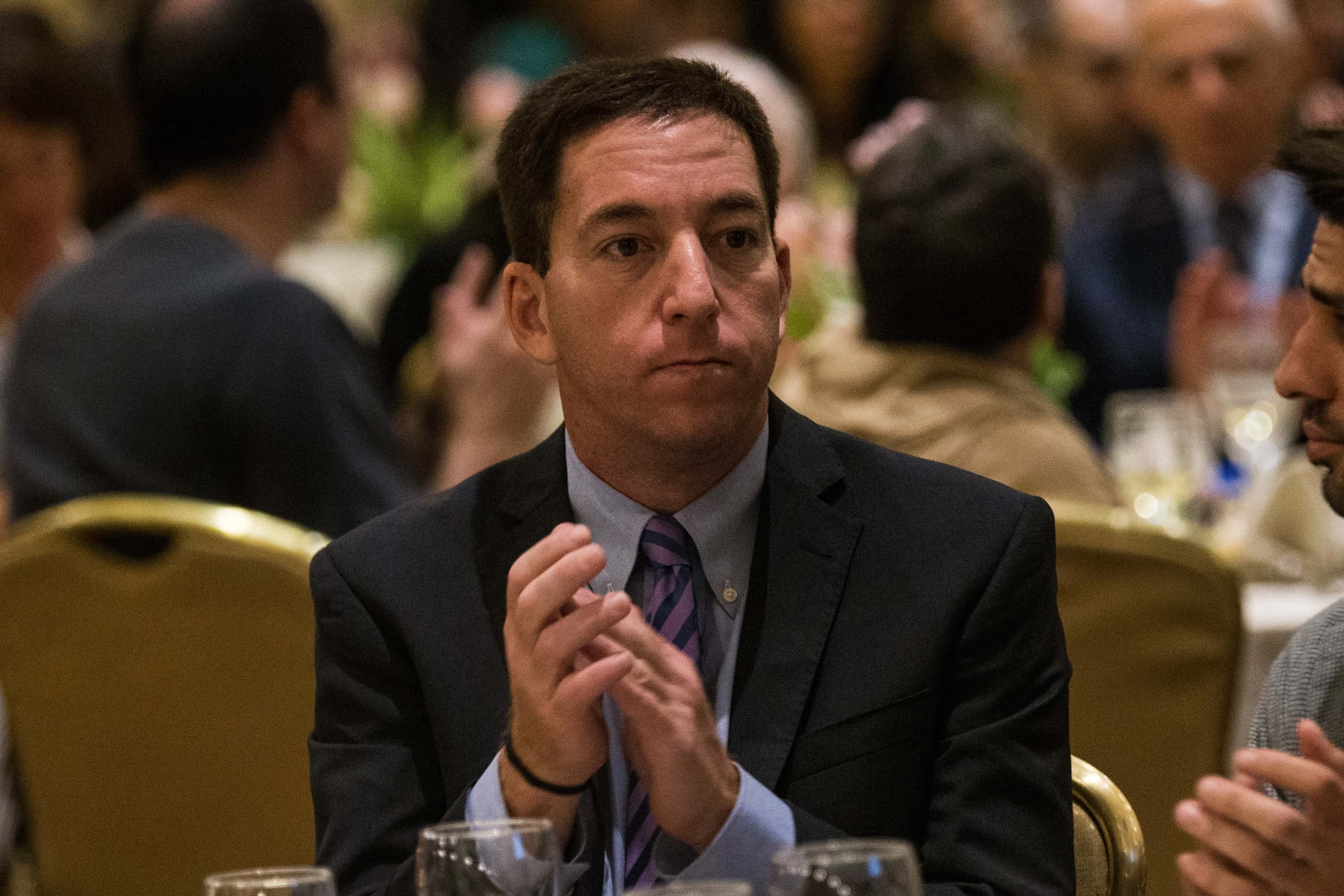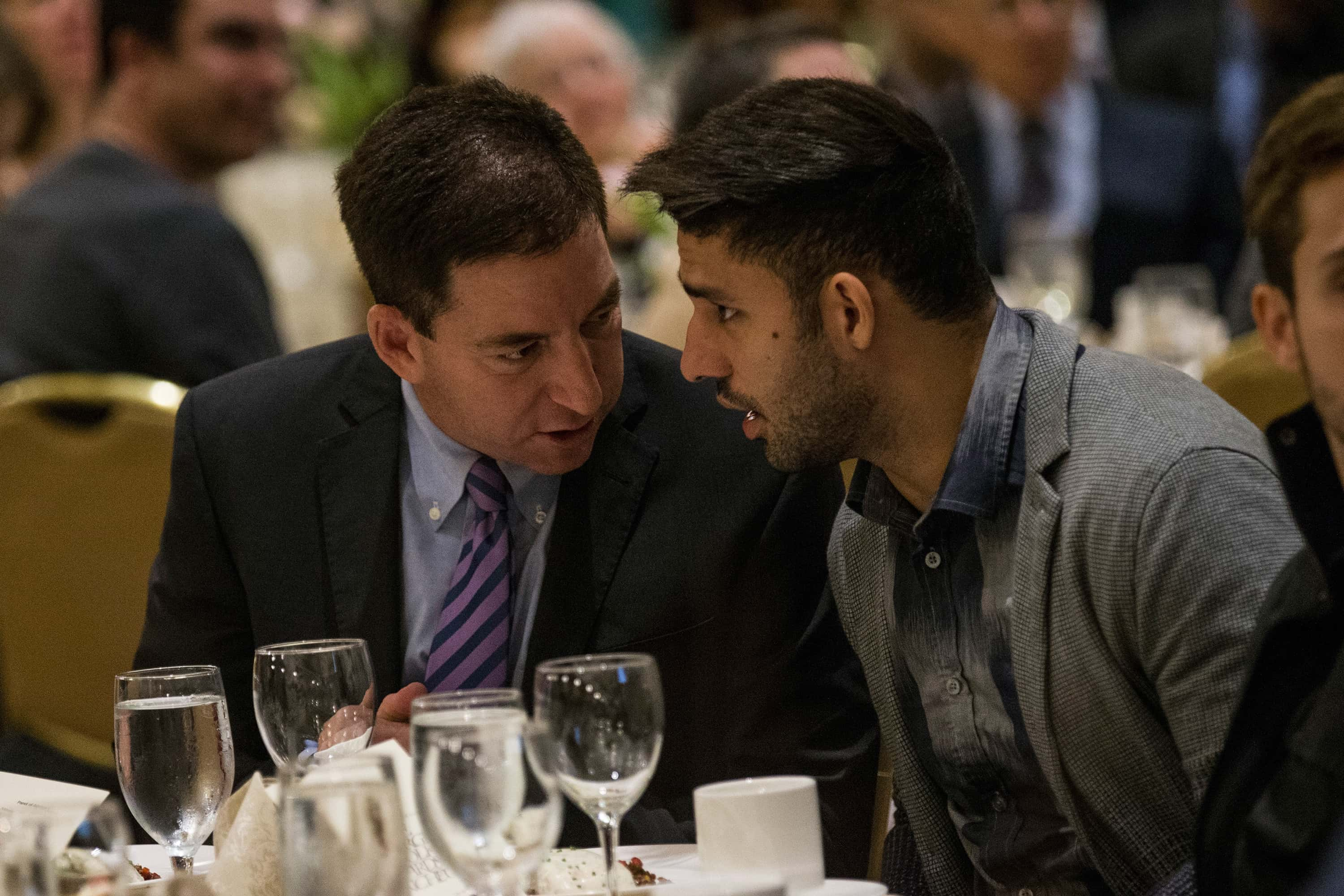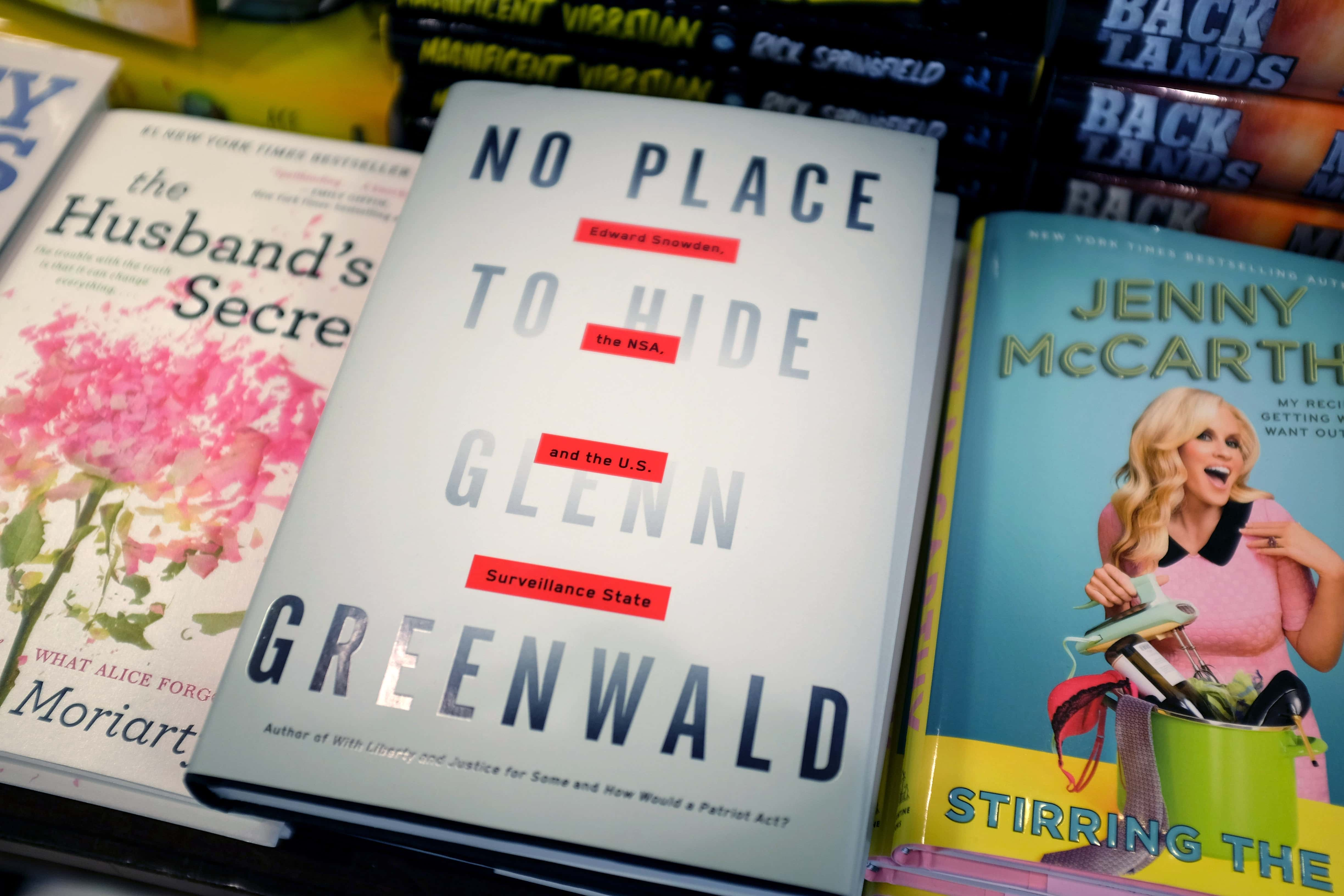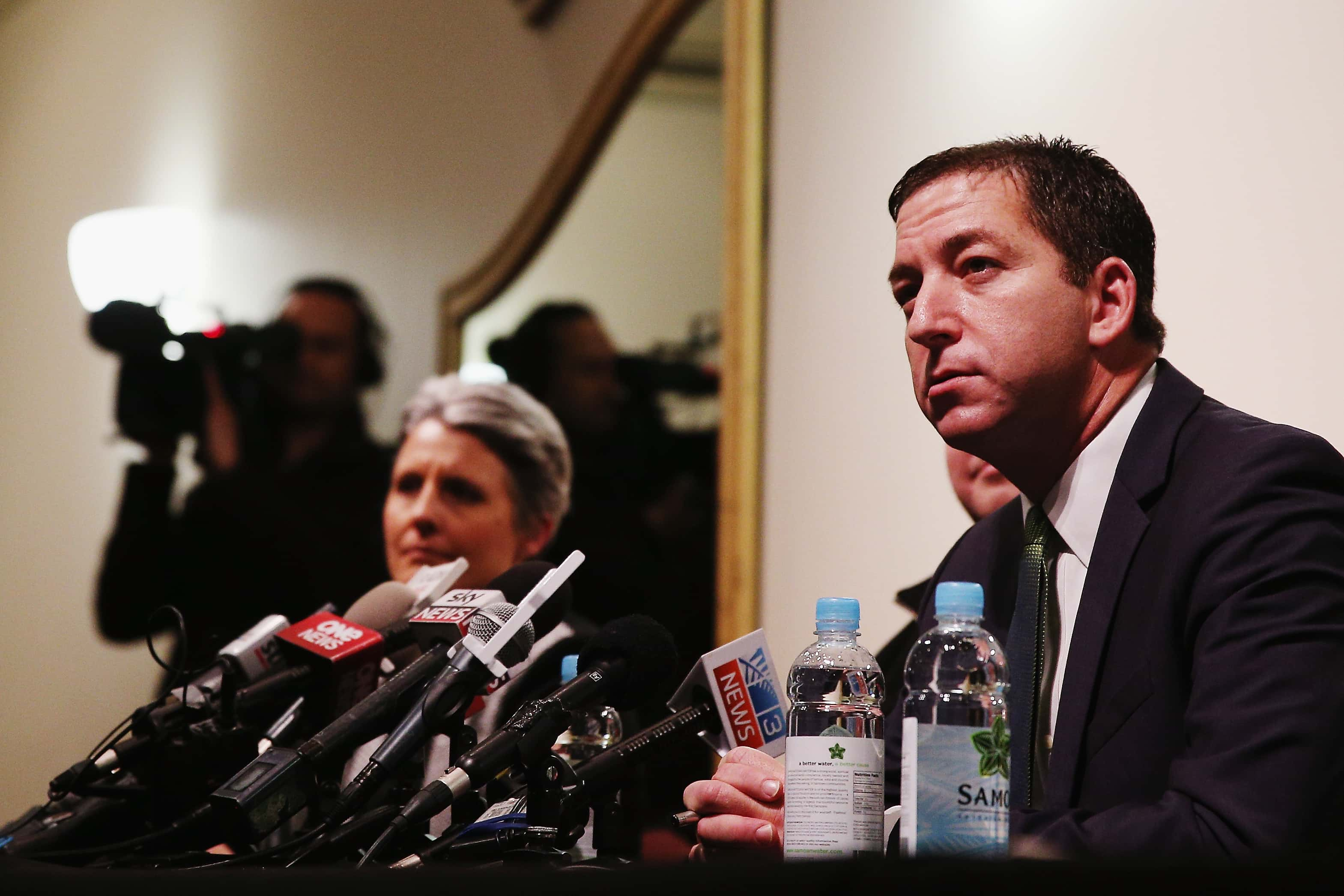OPINION | Glenn Greenwald: How daring investigative journalist fell from grace to attack and harass the press

Once upon a time, Glenn Greenwald was the journalist many people looked up to. He didn't have the training, but that didn't stop him from building a reputation as one of the best in the field. From his harsh criticism of the Bush administration to the Snowden files, Greenwald was heralded and praised by many back in the day. Nowadays though, life doesn't seem so rosy for Greenwald. He has quickly fallen from grace, and now become a bit of a punching bag for the internet.
On Monday, Greenwald came under heavy fire for harassing a journalist at USA Today. Make no mistake, it is an attack alright. Responding to a tweet by the journalist about her first story, Greenwald tweeted, "Congratulations on using your new journalistic platform to try to pressure tech companies to terminate the ability of impoverished criminal defendants to raise money for their legal defense from online donations. You're well on your way upward in this industry for sure:"
Congratulations on using your new journalistic platform to try to pressure tech companies to terminate the ability of impoverished criminal defendants to raise money for their legal defense from online donations. You're well on your way upward in this industry for sure: https://t.co/pvpmX3DaaW
— Glenn Greenwald (@ggreenwald) March 28, 2021
That immediately got social media riled up, slamming him for targeting a journalist for doing her job. This isn't the first time Greenwald has attacked the very press he helped defend, first as a lawyer and then as a journalist. He's previously attacked CNN, Tucker Carlon, MSNBC, and others. It's unclear what prompted these attacks, but it paints a pretty poor picture of the Pulitzer Prize winner. How did it get so bad? To do that, we need to take a deep dive into Greenwald's life, connecting the threads of his various experiences.

From lawyer to journalist
Greenwald is by profession, a lawyer. In 1990, he graduated with a BA from George Washington University before pursuing a JD from New York University School of Law. After passing out in 1994, he worked as a constitutional lawyer in New York City. "It wasn't the monetary value," Greenwald told Buzzfeed. "It was just the symbolism for me." He spent the next 18 months representing investment bankers and other big-money firms. Soon though, he found that the symbolism wasn't as strong a magnet as he first thought. "I knew that I didn't want to be representing rich people. I wanted to be suing them," he said.
That lack of interest, led to his first-ever over-the-internet fights, at Townhall. The conservative political forum served as an early reminder of just how brutal Greenwald could be. He often spent his time engaged in tormenting others on the platform, but coincidentally, it also provided him with a valuable learning experience. "The more I started doing it, the more I got drawn into the conversations. It was an eye-opening experience, and it taught me not to make assumptions about who people are," he said.
But his interest in politics goes back way further. At 17, Greenwald attempted to run for the city council. It took two unsuccessful campaigns for Greenwald to realize that politics wasn't meant for him. "In politics, you need a desire and ability to please large numbers of people. That's definitely not in my interests and not what I do well," he said. So what does a politically-engaged lawyer who is fed up with his job do? Get more political as a lawyer of course!
Greenwald walked away from his job at Wachtell Lipton Rosen & Katz to open his own firm. There, he spent five years defending the first amendment rights of neo-Nazis like Matthew Hale. Within a few years, Greenwald made a name for himself. By the turn of the millennium, Greenwald's three-man firm was taking on some of the biggest names in New York City. However, even that didn't seem to satisfy his appetite. He quickly grew bored of the law world and quit to start a consulting company. That lasted just two years as well, forcing him to take a break and head to Brazil.
That's where Greenwald met his current spouse David Michael Miranda. That romance seemed to spark something in Greenwald and he decided to turn to journalism.

Greenwald's rise and fall as a journalist
In 2005, he started a blog, and within months had his first major story -- NSA surveillance. In October that year, news broke that Bush had authorized the NSA to eavesdrop on American citizens. As he wrote about it, people noticed. Slate magazine first began citing his blog, before eventually offering him a job as a columnist in 2007. All his political interest, which may not have worked out in the council was now channeled into his writing. He also published a book - 'How Would a Patriot Act? Defending American Values From a President Run Amok' - I'm in 2006.
He followed that up in 2007 with another book, 'A Tragic Legacy: How a Good v. Evil Mentality Destroyed the Bush Presidency', and a third one in 2008. These books and blogs gave Greenwald something he didn't have in a long time - agency. He now had the agency to publicly say what he thought, and early on, people seemed to like it. His coverage of Bush and the NSA surveillance earned him numerous awards and mentions, including being cited at a Senate Judiciary Committee hearing.
In 2012, he was hired by The Guardian, which is where he really made headlines. In 2013, he broke Edward Snowden's story of surveillance on the American people. This wasn't like Bush and the NSA, Snowden's revelations had serious implications for civil liberties, and the world noticed. In 2014, his work was recognized with a Pulitzer Prize for The Guardian. But as awards came his way, Greenwald realized that he needed something greater - and so he quit The Guardian.
In 2014, Greenwald joined The Intercept as an editor. By this point, the agency to write what he wanted and thought was practically unchallenged. Greenwald's political views were becoming clear, so clear in fact that they served as his downfall. In October 2020, Greenwald resigned from The Intercept, citing "political censorship". He claimed, "The Intercept’s editors, in violation of my contractual right of editorial freedom, censored an article I wrote this week, refusing to publish it unless I remove all sections critical of Democratic presidential candidate Joe Biden, the candidate vehemently supported by all New-York-based Intercept editors involved in this effort at suppression.”
While that claim is disputed, it didn't win him any friends. Greenwald left The Intercept on a sour note and turned to Substack instead. That's where his journalism now lives, amidst a sea of controversy. That brings us to the next chapter of this profile - his political views.

Neither left nor right
From the start of his career as a lawyer, Greenwald has signaled a strong sense of consistency. As Buzzfeed wrote, "Greenwald is a rare man of inflexible principle in an online conversation dominated by flexible partisans." He's defended neo-nazis in court, argued for LGBTQ rights, and exposed government surveillance. Looking back at all his years of writing, it's possible to see that the only common thread is Greenwald's defense of the law, irrespective of politics. He doesn't consider himself a Republican, or a Democrat. Indeed, he has become a thorn for both.
He's been a longtime critic of liberal policymakers, earning their ire for his disdain over Russia's alleged interference in the 2016 election. He often criticized Hilary Clinton on the campaign trail and was even responsible for breaking the leaked emails from her server. Greenwald blamed the results of 2016 not on Russia, but the ineptitude of Clinton and the Democrats. If anything, he can probably be considered as big of a headache for the left as Sean Hannity, or Tucker Carlson.
But it swings the other way as well. Greenwald hasn't entirely embraced the right, even if he has defended Trump from being 'Russia's pet'. While he did make a few appearances on Carlson's show, Greenwald has often attacked Republicans, Carlson included. In early March 2021, he called Carlson "a socialist", equating right-wing populism with socialism. What it goes to show is that Greenwald isn't loyal to any one side, a rare characteristic for the modern world.
Since he isn't loyal to anyone else, Greenwald is free to be who he truly is, and that is not someone many people like. In an interview with Vox, he said, "when you’re a journalist, I think your role ought to be adversarial to people who wield the greatest power and to say the things you think are true — even if it hurts the candidate you like or helps the one you dislike. Because that’s how society stays balanced."
In his march to remain an adversarial journalist, Greenwald has made a lot of enemies, but more so of late when Twitter has become a key weapon of choice. Over the last few years, Greenwald has stepped up his attacks on journalists, and others in the public light through the platform. While he sees it as doing his job, holding others to account, many see him as an internet bully. That is despite him mellowing down over the years. According to The New Yorker, Greenwald is "trying to become less acerbic, less gratuitously combative”. In that 2018 interview, he also claimed to cut back on social media usage, but if his recent tweets are anything to go by, that doesn't seem to be happening.

'Greenwald the bully'
To understand Greenwald the 'bully', you need to understand Greenwald. He's got three key factors:
1) He isn't affiliated to any side or party
2) He is willing to speak out for what he believes in
3) He doesn't care what others think
Together, these three allow Greenwald to step up and say things that others can't, without much consideration for their effects. As long as he's speaking what he perceives to be the truth, he has no worries about the consequences. While that's an admirable quality for a journalist, it's also a dangerous one. It opens up the person to be free-flowing with their thoughts and words, even at the cost of others. That's exactly what is happening now.
Greenwald's lack of inhibitions is well suited for his work on Substack, but when it comes to Twitter, where he engaged more directly, it has terrible consequences. The latest incident, with Brenna Smith, is just another example of that. We don't know why he chose to comment on Smith's article, and why he chose to say what he did. We can only guess until we hear from Greenwald himself, which so far has not happened. MEAWW reached out to Greenwald for comment but has not heard back.
While Greenwald has been slammed, repeatedly, by social media for his tweet, it doesn't seem to have affected him at all. He's only doubled down on his criticism, tweeting a thread in response. It goes to show that there is little to be gained from attacking Greenwald online. His convictions are so strong, he fails to see what others do. Should he apologize to Smith? Maybe. Will he? Definitely not. Instead, his account is now filled with retweets of those supporting him.
It's unlikely that any lessons will be learned here. From his most recent tweets, one can even assume that he refuses to learn. Whatever the case may be, one thing is clear from his Twitter account - Glenn Greenwald the journalist may or may not be around for long, but Glenn Greenwald the bully will be.










